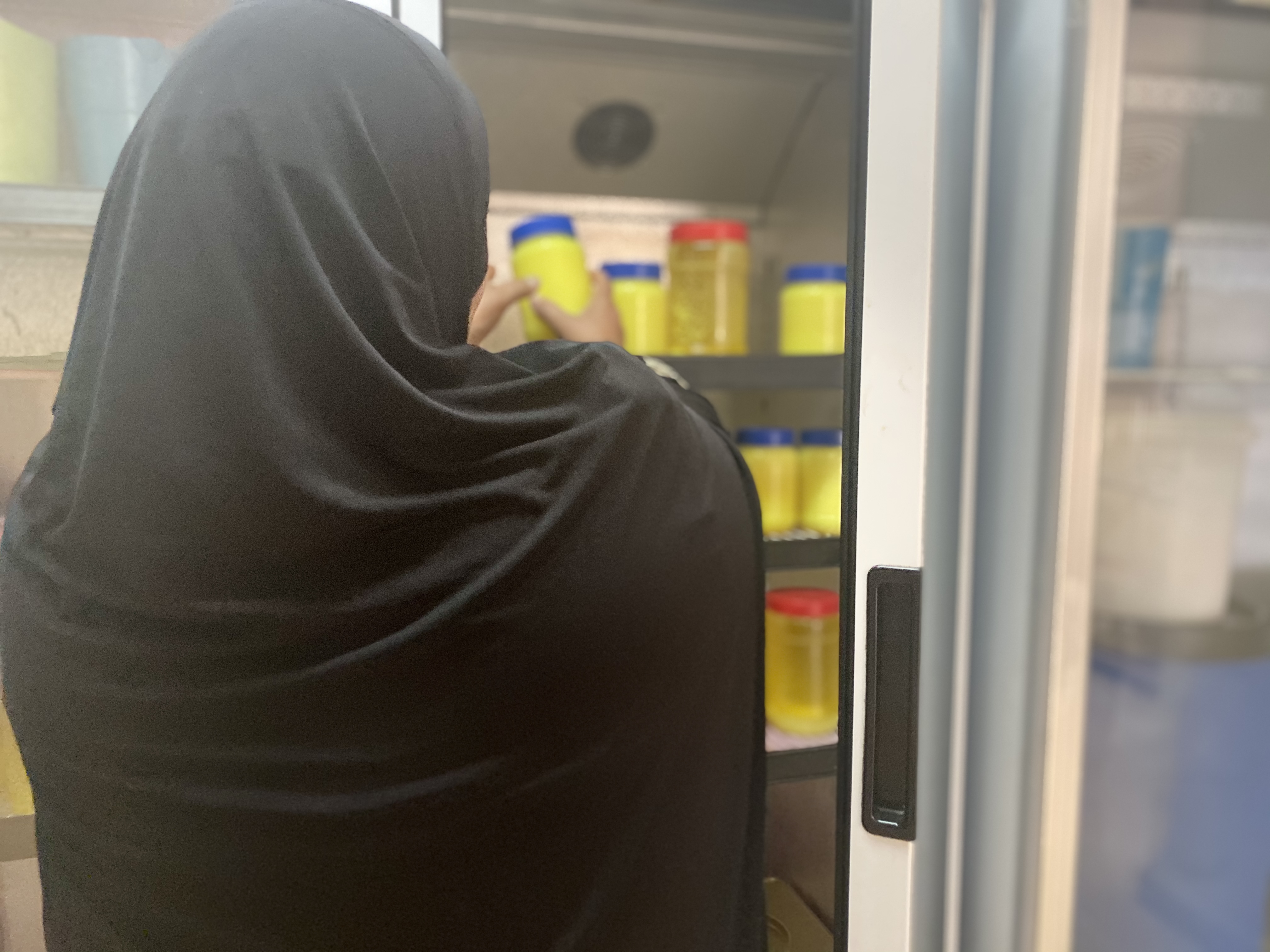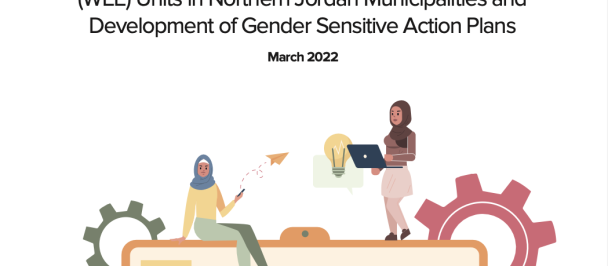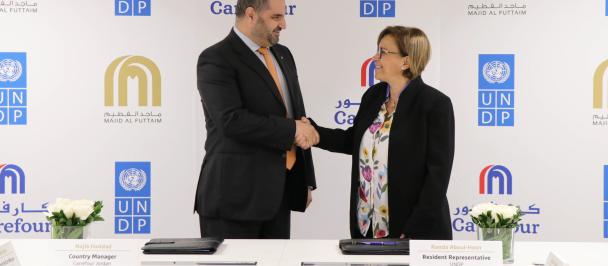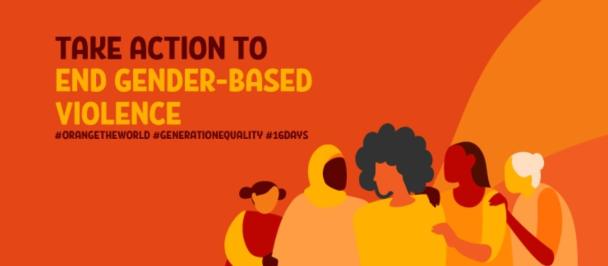Tackling poverty and unemployment in Jordan
Empowering Women in Economy
October 1, 2020
Um Sami in Sayyedat Al Badia dairy facility
Jordan - She wakes up before the sunrise for the dawn prayers, getting her Arabian sugarless coffee to enjoy a moment of silence in her spacious balcony. Her morning rituals kicks in with watering her garden and preparing the meals for her three children.
This is how 56-year-old Um Sami starts her day - She lives in a small house with her children in Mwaqqar, 50 KM East from Amman. Um Sami lost her husband several years ago and is now the only supporter for her family.
Her older son Sami is a university student, and she barely covers the college tuition fees for her second son, while her young daughter Raghad is a Tawjihi student. Um Sami wishes that Raghad will be able to apply for the University, as the family is facing critical financial burdens during these uncertain times of COVID-19. The family lives on $250 USD as a monthly salary from social security and they hardly get through the end of the month to ensure their basic needs are covered.
At just 14%, women in Jordan have one of the world’s lowest rates of participation in the formal labour market. Cultural norms, gendered stereotypes and wage inequality are some of the many reasons that women are still underrepresented in the formal economy. Add to that the minimal or very expensive childcare options, unsafe public transport, and the risk of harassment while commuting to work or at the workplace.
However, Um Sami is not easily defeated. Every day after lunch time, she spends her afternoons and evenings working at Sayyedat Al Badia Cooperative Association, “Even though the norm was for women to stay at home my family is relying on me and I needed to find an opportunity where I can expand my skills and increase my income” Um Sami says.
It was a transitional phase of Um Sami’s life when she received hands-on practical training on the appropriate dairy production techniques along with basic instruction on storage and hygiene precautions, she added, “at first I had minimal skills on dairy production which I learned from my mother and great grandmother and back then practices were done differently, but nowadays there are various elements that should be taken into consideration in dairy productions.”
“Before we start we gather around and split the workload between us, most of us leave our homes at the evening to work in the Sayyedat Al Badia and its not only about coming to work, we also enjoy the company of each one of us”, Um Sami said.
Training was not the only aspect that supported Sayyedat Al Badia women, but also through UNDP, cooperative dairy facility was renovated and upgraded with dairy-production equipment and machines and a small lab to test the quality of the milk before entering the production process.
Mainstreaming business
“We produce high-quality milk, and we are proud of that.” Said Um Sami with a tone of joy.
The 150 meters dairy workshop is small but mighty, as great potentials and opportunities do exist for a small workshop in Central Badia and specifically for Sayyedat Al Badia women.
While investing in women’s training and upskilling can change the lives and opportunities of women and their families, it is also increasingly important to sustain local economies. Because when more women work, economies grow. Therefore, when women in the Central Badia become employed and earn an income, some of those women will eventually be able to start their own businesses that provide new jobs that can boost the local economy.
“We are aspiring that our products would be found in every single house in Jordan, but unfortunately marketing our products is a challenge we are facing”, Um Sami added.
Sayyedat Al Badia women have been part of different local markets exhibition “Bazar” where their products were on demand, however, due to COVID-19 pandemic the country is facing challenges in showcasing their products are growing.
“The opportunity of working with Sayyedat Al Badia had opened doors for me and made me more resilient as women and as a mother” she said, before adding “women in Jordan are powerful, strong, ambitions, and eager to grow and flourish”.

 Locations
Locations


